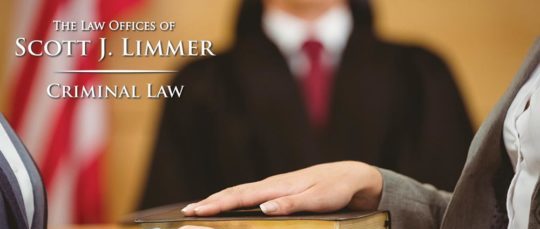You have likely heard someone say they are “pleading the Fifth,” whether it was in a court, on television, or by a child refusing to completely answer their parents’ questions. This legal term has become commonplace, but it is still important to understand what it means, what protections it offers, and how you can use it to protect yourself.
What is the Fifth Amendment Privilege
Under the Constitution, no one can be compelled to act as a witness against himself or herself in a criminal matter. This protection is provided under the Fifth Amendment, part of the constitution’s Bill of Rights. In the courtroom, you are most likely to invoke your Fifth Amendment privilege if you are the defendant in a criminal case by refusing to testify. However, you may choose to invoke this privilege in other matters, like civil or family cases, if a particular question would require you to admit to criminal acts. It is also important to know that the Fifth Amendment applies in both state and federal courts.
When Does it Apply?
The Fifth Amendment Privilege applies specifically to testimony that you reasonably believe could be used by the prosecution or could lead to other evidence against you in a criminal case. For example, you might avoid testifying that you robbed a particular bank, but you could also avoid testifying that you were at the bar around the time it was robbed, as this might provide the state with evidence you were there at the time of the robbery. However, testifying that you had been stressed at work would not be protected, even if the stress was why you chose to go to the bar that day; it is not reasonable that this information would lead the state to evidence against you.
Privilege can also apply to completing certain tasks that would implicate you in a crime. You cannot be forced to provide the key or combination to a safe that contains stolen documents, as this would be “testimonial in nature.” However, observable actions are not protected by the Fifth Amendment, nor are they waived if you demonstrate them in court. You may be asked to stand to show your height, to walk to demonstrate your gait, or as in the infamous O.J. Simpson trial, you try on the gloves an assailant wore to commit a crime.
Waiving the Privilege
One of the most important things to know is that, if you are the defendant in a criminal case, you waive your Fifth Amendment privilege the moment you take the witness stand. Unlike civil cases or criminal matters where you are merely a witness, you cannot choose to answer some questions and refuse to answer others under this privilege.
You can, at any time, waive your right to self-incrimination. You may choose to do so because your testimony would demonstrate you committed a much more minor crime or to provide a defense to your charges, like self defense or alibi.
Civil Matters
As noted above, the Fifth Amendment Privilege applies only to self-incriminating testimony relating to a crime. It does not apply to civil or family matters. You cannot assert this protection to avoid testifying that you breached a contract or that you left your spouse, for example, as these are not crimes. You can, however, avoid testifying that you committed adultery, as that is still a crime in New York and many other states.
Another key difference between testifying in a civil matter, or even participating as a witness in a criminal case where you are not the defendant, is that taking the witness stand or offering testimony under oath does not automatically waive your Fifth Amendment rights. In these situations, you may answer some questions while refusing to answer others to avoid self-incrimination. It is generally wiser to avoid answering any incriminating question by asserting this privilege, particularly if you have a criminal case pending.
Immunity
If you have been charged of a crime, particularly if you have co-defendants or the prosecution thinks you might be able to offer testimony regarding other crimes, the state may offer you immunity. If you have been given immunity, you no longer have the protection against self incrimination, which can be concerning, since immunity is not as straightforward as it seems on television.
The State may offer you transactional testimony for your testimony; this immunity prevents the State from prosecuting you for the underlying offense. Most movies and television shows tend to refer to this type of immunity. The State may, instead, offer you “use” immunity. Use immunity does not prevent your prosecution. It only guarantees you that your testimony will not be used against you; the State may still charge you based on independent evidence of your alleged crime.
The State does not have to negotiate a deal with you in order to give you immunity, and if you are given immunity, your ability to assert your Fifth Amendment privilege will be limited, if you can assert it at all. That is what makes use immunity, in particular, so troubling. As in the previous locked safe example, the prosecution can choose to give you use immunity to the act of producing the key to the safe, but no immunity to what it might find inside.
Consequences of Asserting Privilege
Although you have the absolute right to assert your Fifth Amendment privilege, doing so can have its consequences. Judges and juries are not supposed to make assumptions about your guilt based on whether or not you assert your protection against self-incrimination. In fact, most juries are given specific instructions not to infer that you are guilty merely because you did not testify. Unfortunately, this assumption is very common and can have some impact on your case.
